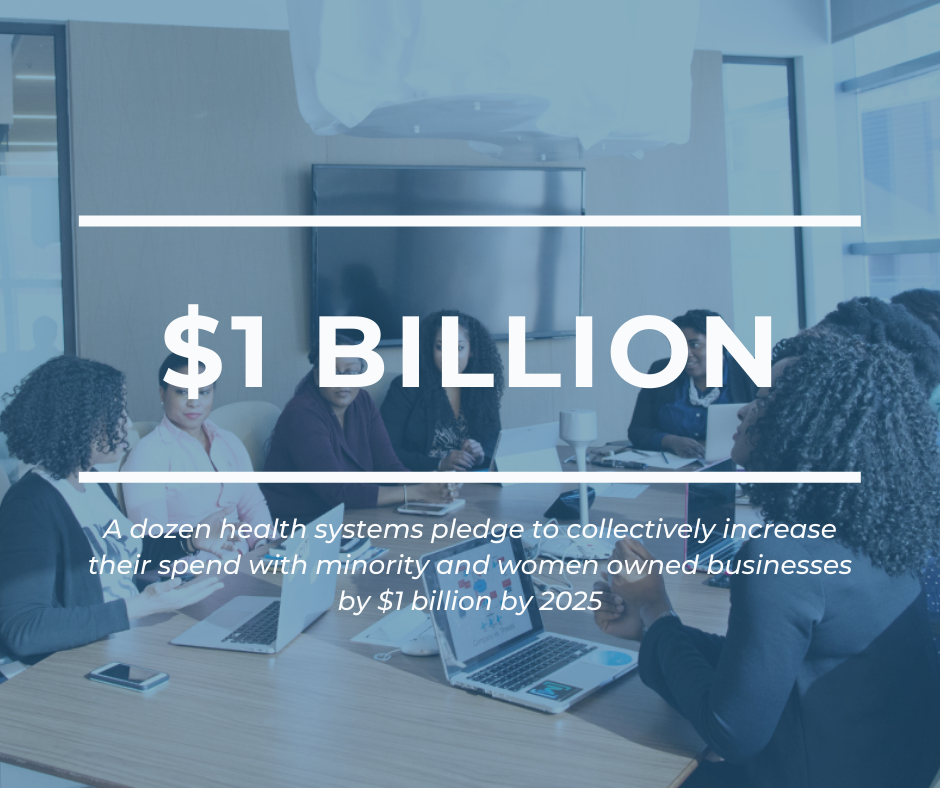Members of the Healthcare Anchor Network are committed to bettering their communities beyond what happens within the walls of their hospitals. The health of the community is inextricably linked to the availability of affordable housing, employment opportunities, fresh and healthy food, and a safe environment. On June 9th, 12 HAN member health systems announced their signing of the Impact Purchasing Commitment (IPC), further showcasing their dedication to these upstream determinants of health.
The health systems adopting the Impact Purchasing Commitment include Advocate Aurora Health, Baystate Health, Bon Secours Mercy Health, Cleveland Clinic, CommonSpirit Health, Henry Ford Health System, Intermountain Healthcare, Kaiser Permanente, Providence, Rush University Medical Center, Spectrum Health, and UMass Memorial Health.
The IPC leverages hospital spending in order to build healthy, equitable, and environmentally resilient communities. These 12 HAN members have committed to increase spending collectively by at least $1 billion over the next five years at Minority and Women-Owned Business Enterprises (MWBEs), as well as at local, employee, cooperative, and/or nonprofit-owned enterprises. As part of the IPC, signatories will also work with at least two of their large existing vendors to create hiring pipelines in the disinvested communities that they serve. Health systems are leading employers and economic engines within their communities, and with their institutional resources and almost $500 billion in annual spending, are well positioned to address the economic, racial, and environmental disparities that impact community health.
This commitment to impact purchasing is especially important as the country recovers from the impact of COVID-19. Immigrant, women, and Black, Latinx, and Asian-owned businesses were all forced to close at higher rates and faced sharper declines in cash balances. These businesses generate local jobs and put income back into the communities, and so their loss has been devastating. The IPC signatories recognize the importance of these small local businesses in generating community health and wealth, and know that a $1 billion commitment will have a tremendous impact in helping these businesses recover, grow, and thrive.
These small businesses often struggle to secure large, stable contracts which means that lucrative contracts often bypass local and diverse businesses in favor of larger enterprises that exist outside of the local community. By shifting some of this spending, hospitals and health systems are able to act as anchor institutions and support local and MWBEs. This investment acts as a multiplier, as local businesses are then able to employ local residents. And as Kaiser Permanente chair and chief executive officer Greg A. Adams said, “This commitment to social equity through supplier diversity, environmental protection through sustainable sourcing, and economic impact through job creation is critical to both individual and community health.”
These institutions are members of the Healthcare Anchor Network (HAN) that supports health systems to accelerate learning and local implementation of economic inclusion strategies. The HAN hospitals and health systems together employ more than 1.5 million people, purchase over $75 billion annually, and have over $150 billion in investment assets.
